
Jan 8, 2024 | Advocacy, Cases, News
For Immediate Release
Gambian Ex-Minister Sonko Faces Crimes Against Humanity Charges
(Geneva, January 5, 2024) – The opening of a Swiss trial on January 8, 2024, for serious crimes committed in The Gambia represents a significant advance for justice for the victims of grave abuses, Gambian and international groups that are part of the Jammeh2Justice campaign said today.
The former Gambian Interior Minister Ousman Sonko is charged with crimes against humanity relating to torture, kidnapping, sexual violence, and unlawful killings between 2000 and 2016 under then-President Yahya Jammeh. Jammeh’s 22-year rule was marked by systematic and widespread human rights violations, such as arbitrary arrests, torture including sexual violence, extrajudicial killings, and enforced disappearances of actual and perceived opponents to his rule.
“The trial of Ousman Sonko is another major step in the search for justice for victims of brutal crimes and their families committed under Jammeh’s rule,” said Sirra Ndow, coordinator of the Jammeh2Justice campaign. “The Sonko case should reinforce efforts back in The Gambia to try crimes under Jammeh’s rule so that perpetrators are held to account for the atrocities committed.”
Sonko was arrested in Bern, Switzerland on January 26, 2017, the day after TRIAL International filed a criminal complaint against him. The Office of the Attorney General of Switzerland filed an indictment against Sonko before the Federal Criminal Court on April 17, 2023. The trial, taking place in the city of Bellinzona, is expected to last about three weeks.
The trial is possible because Swiss law recognizes universal jurisdiction over certain serious international crimes, allowing for the prosecution of these crimes no matter where they were committed and regardless of the nationality of the suspects or victims. Swiss nongovernmental organizations, former federal prosecutors, members of parliament, and others have previously criticized judicial officials in Switzerland for lagging behind other European countries on universal jurisdiction cases despite having solid legislation to address serious crimes.
“With Sonko’s trial, Switzerland appears at last to be gaining momentum on prosecuting atrocity crimes committed abroad,” said Philip Grant, executive director at TRIAL International, which supports plaintiffs in the case. “Sonko is the highest-level former official to be tried under the principle of universal jurisdiction in Europe.”
Sonko is the second person to be tried in Switzerland before a non-military court for serious crimes committed abroad, the second person to be tried in Europe for crimes committed in The Gambia, and the highest ranked official to be prosecuted in Europe on the basis of universal jurisdiction. Gambian activists and survivors, and international advocates will attend the trial’s opening in Bellinzona and are available for comment. The first case addressing crimes committed in The Gambia was in Germany against Bai Lowe, a former member of the paramilitary unit known as the “Junglers,” which Jammeh created. Lowe was convicted and sentenced to life in prison by a German court on November 30, 2023, for two murders and an attempted murder, constituting crimes against humanity.
A major challenge will be to ensure that Gambians, whether in the audience or outside the courtroom, can access, follow, and understand the proceedings, which will be conducted in German. Survivors, victims’ groups, and civil society groups have tried to ensure that information on developments is disseminated within The Gambia to increase their impact.
“Developments in the proceedings of such a significant case should be made accessible to Gambians, victims and non-victims alike, in the English language, which they understand, there by boosting their interest in the trial,” said Fatoumata Sandeng, a plaintiff in the Sonko case who heads the Solo Sandeng Foundation. “Greater action on accountability by the government back home in Gambia is also needed.”
Since Jammeh’s fall, The Gambia has moved forward with only two prosecutions for Jammeh-era crimes. In December 24, 2021, the final report of Gambia’s Truth Reconciliation and Reparations Commission (TRRC) found that Jammeh and 69 of his associates committed crimes against humanity, and called for their prosecution. On May 25, 2022, the Gambian government accepted the TRRC’s recommendation for accountability, but without an action plan.
On May 12, 2023, the government presented a long-awaited detailed implementation plan calling for the creation of a Special Prosecutor’s Office to complete the investigations initiated by the TRRC and to prepare case-ready dossiers. A hybrid tribunal of Gambia and the Economic Community of West African States (ECOWAS) would be created to carry out prosecutions of the most serious offenses. The Gambia and ECOWAS have created a joint technical committee to develop the hybrid court.
“The Gambian government and ECOWAS should move without delay to create the hybrid court,” said Elise Keppler, associate international justice director at Human Rights Watch. “Victims and the Gambian public have waited a very long time to have the chance to see justice done.”
Groups involved with the campaign include: Africa Center for International Law and Accountability (ACILA), African Network Against Extrajudicial Killings and Enforced Disappearances (ANEKED), Amnesty International–Ghana, Center for Justice and Accountability, Commonwealth Human Rights Initiative (CHRI), Gambia Center for Victims of Human Rights Violations, Ghana Center for Democratic Development (CDD-GHANA), Human Rights Advocacy Center, Human Rights Watch, International Commission of Jurists, Institute for Human Rights and Development in Africa (IHRDA), Media Foundation for West Africa (MFWA), POS Foundation, Right 2 Know–Gambia, Solo Sandeng Foundation, The Toufah Foundation, TRIAL International, and Women’s Association for Victims’ Empowerment (WAVE).
For more information on the trial, please visit:
https://trialinternational.org/latest-post/ousman-sonko-case-the-second-trial-for-crimes-against-humanity-in-switzerland-to-take-place-in-january-2024/
or, https://trialinternational.org/wp-content/uploads/2023/04/The-Ousman-Sonko-Case_QA.pdf
For more information, please contact:
For Human Rights Watch, in New York, Elise Keppler (English, French): +1-917-687-8576 (mobile); or kepplee@hrw.org. Twitter: @EliseKeppler
For TRIAL International, in Geneva, Vony Rambolamanana (English, French, German): +33-66 -48-80-305 (mobile); or media@trialinternational.org. Twitter: @trial
For ANEKED, in New York, Nana-Jo Ndow (English, French, Spanish, Portuguese): +1-929-684-5734 (mobile); or nanajo.ndow@aneked.org. @theANEKED
For International Commission of Jurists, in Barcelona, Reed Brody (English, Spanish, French, Portuguese): +1-917-388-6745 (mobile); or reedbrody@gmail.com. Twitter: @reedbrody
For Solo Sandeng Foundation, in Germany, Fatoumatta Sandeng (English, German, Mandinka, Wollof) +49-16-31-74-75-19 (mobile); or solosandengfoundation@gmail.com. Twitter: @solosandengfound
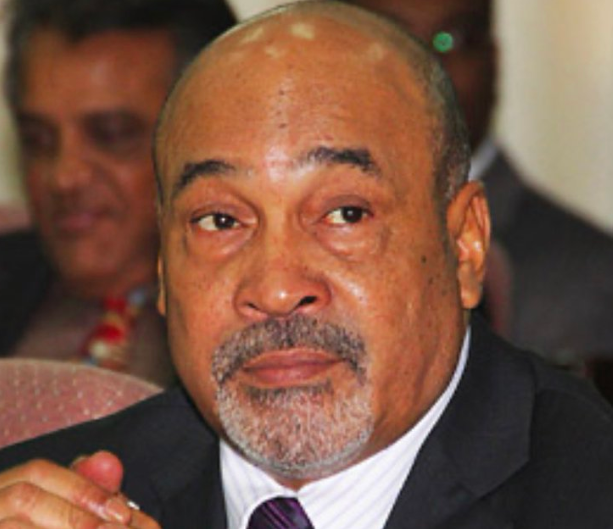
Dec 20, 2023 | Cases, News
Desi Bouterse sentenced to 20 years in prison
Paramaribo, Suriname; 20 December 2023 – The International Commission of Jurists (ICJ) welcomed the 20 December decision by the Hof van Justitie, the highest court in Suriname, confirming the conviction of former president Desi Bouterse for the 1982 murders of 15 political prisoners.
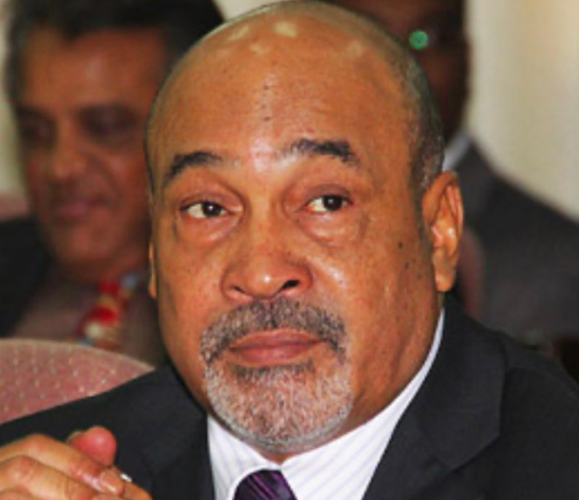
The three-judge chamber also confirmed Bouterse’s sentence of 20 years in prison. It was not immediately clear when Bouterse, who was not in court, would begin serving his term. The court also sentenced his four co-accused to 15 years each.
It took 41 years, but the long arm of the law has finally caught up to Desi Bouterse,” said Reed Brody, an American lawyer who attended the verdict for the ICJ. “Suriname has chosen the rule of law. The judges who rendered today’s decision and those who issued the original conviction while Bouterse was still president should be praised for their fortitude and their independence.”
Bouterse’s lawyer had indicated that in the event of a conviction, he would file a challenge with the Inter-American Commission on Human Rights, though it is not clear on what ground, and such a filing does not stay the operation of the sentence. The only domestic channel available for Bouterse is to seek a pardon from president Chan Santokhi.
The ICJ underscored that extrajudicial executions are crimes under international law, that Heads of State enjoy no special immunity from prosecution for such crimes irrespective of when they were committed, and that pardons may not be applied to shield those responsible from criminal accountability.
Today’s decision is a victory for the families of Bouterse’s victims, who never gave up, and for all those around the world seeking to bring powerful abusers to justice,” said Brody. “It should serve as another reminder that accountability for the most serious crimes has no expiration date.”
Background
On 8 December 1982, 15 leading opponents of Suriname’s then military regime led by Desi Bouterse, who had been taken from their homes and arbitrarily detained the night before, were executed at the military barracks of Fort Zeelandia in the capital Paramaribo, after apparently being subjected to torture. The victims included the country’s chief labor leader, four lawyers, two reporters, a radio commentator, the owner of a news service, an industrialist, a former congressman, and a professor of biophysics.
No investigation of the killings was undertaken, even following the restoration of democracy in 1987. On the eve of the expiration of the 18-year statute of limitations for murder in 2000, the families of the victims obtained a court order mandating an investigation. In November 2007 the Krijgsraad (a military court comprised in the case of Bouterse of civilian judges) was established to hear charges against Bouterse and 24 other suspects. The process was plagued with prolonged suspensions and delays, especially following the election of Bouterse as president of Suriname in July 2010. First, the trial was suspended for four years following an amendment passed by Bouterse’s party to the Amnesty Law of 1989 (now repealed) granting him and the other accused immunity from prosecution. Then Bouterse ordered the attorney general (procureur-generaal) to block resumption of the trial on “national security” grounds, but the courts refused the request. He also sought unsuccessfully to fire the attorney general,an independent judicial officer with lifetime tenure, for failing to stop the prosecution. Finally, on 29 November 2019, while Bouterse was still president, the Krijgsraad sentenced him to 20 years in prison for planning and ordering the “December murders”. Because Bouterse chose not to be present at that trial, he was able to obtain a review of the conviction. On 30 August 2021, the Krijgsraad affirmed the conviction. Eyewitness and video evidence adduced at the trials placed Bouterse at Fort Zeelandia where he personally confronted victims before they were shot.
Bouterse, who lost power in 2020, appealed to the Hof van Justitie.
The ICJ has been monitoring the Bouterse trial since 2012. Details of some earlier ICJ’s missions reports and statements can be found here.
Contact:
In Paramaribo, Reed Brody (English, Spanish, French, Portuguese): +1-917-388-6745 or reedbrody@gmail.com. Twitter: @reedbrody
Watch his post-verdict interview with ITV here: https://www.youtube.com/watch?v=1A3DBVVsAmY&t=132s
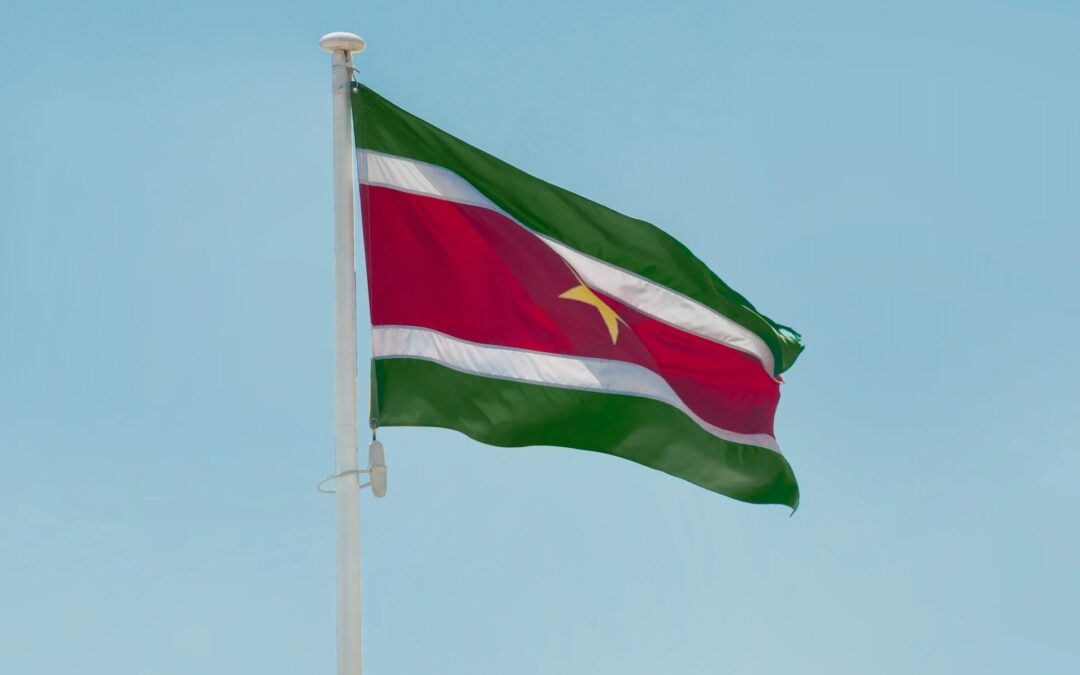
Dec 17, 2023 | Cases, News
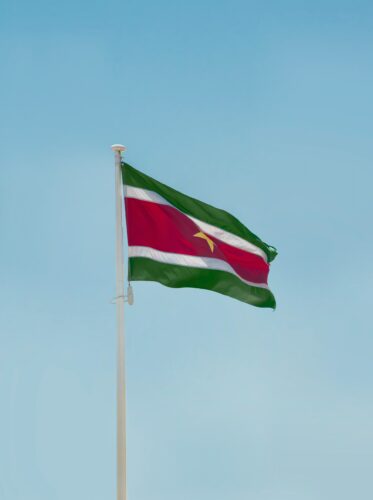
ICJ will monitor Desi Bouterse appeal
Paramaribo, Suriname; 17 December 2023 – On 20 December 2023, the Hof van Justitie, the highest court in Suriname, is expected to issue its final decision in the appeal by former president Desi Bouterse against his conviction for the 1982 murders of 15 political prisoners.
The International Commission of Jurists, which has monitored the trial since 2012, will be present in court in Paramaribo.
“This is the most important criminal trial in Suriname’s history,” said Reed Brody who will attend the verdict for the ICJ. “That a final decision will be delivered, after so many delays and detours, is a tribute to the courage and independence of Surinamese judges, the perseverance of the victims’ families and the resilience of the rule of law.”
Background
On 8 December 1982, 15 opponents of Suriname’s then military regime led by Desi Bouterse, including lawyers, union leaders and journalists, who had been arbitrarily detained the day before, were executed at the military barracks of Fort Zeelandia, Paramaribo, Suriname, after apparently being subjected to torture. Following a complaint by the families of the victims in 2000, in November 2007 the Krijgsraad (a military court comprised in the case of Bouterse of civilian judges) was established to hear charges against Bouterse and 24 other suspects. The process was plagued with serious suspensions and delays, especially following the election of Bouterse as president of Suriname in July 2010 and an amendment of the Amnesty Law of 1989 (now repealed) granting him and the other accused immunity from prosecution. On 29 November 2019, following a decade-long court martial, the Krijgsraad sentenced Bouterse- while he was still president – to 20 years in prison for planning and ordering the “December murders”. On 30 August 2021, the Krijgsraad affirmed the conviction and Bouterse- who lost power in 2020 – appealed. A final decision of the Hof van Justitie is due on 20 December in the cases of Bouterse and four others who have appealed their convictions.
ICJ Monitors
The ICJ trial monitors have been: from 2012 until 2020 – Jeff Handmaker, a former UK barrister and associate professor at Erasmus University in The Netherlands and the University of the Witwatersrand in South Africa; from 2020 – Godfrey Smith SC, former Attorney General of Belize, former acting Justice of Appeal of the Eastern Caribbean Supreme Court; and from 2023 – ICJ Commission member and veteran war crimes prosecutor Reed Brody who has participated in cases involving Augusto Pinochet, Hissène Habré and Jean-Claude Duvalier among others.
Reed Brody will be present in court on 20 December.
Details of some earlier ICJ’s missions reports and statements can be found here.
Contact:
In Paramaribo, Reed Brody (English, Spanish, French, Portuguese): +1-917-388-6745 or reedbrody@gmail.com. Twitter: @reedbrody
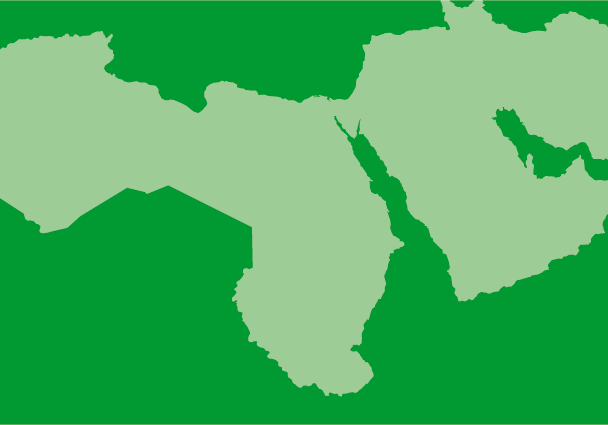
Dec 11, 2023 | Advocacy, News
On the occasion of the 16 Days of Activism against Gender-Based Violence, from 25 November to 10 December, the 25th anniversary of the Declaration on Human Rights Defenders on 9 December, and the 75th anniversary of the Universal Declaration of Human Rights, on 10 December, the International Commission of Jurists (ICJ) condemns gender-based violence against women human rights defenders (HRDs) in Libya and calls for an immediate end to such violence. In recent years, the authorities in the West and the East of Libya have consistently attacked prominent women HRDs and let non-State actors threaten, assault and kill them with impunity.
.هذا البيان الصحفي متوفر باللغة العربية أيضاً
The situation of women human rights defenders in Libya
In the years that have followed the 2011 uprising and the ouster of Muammar Gadhafi, women HRDs in Libya have been killed and subjected to enforced disappearances. For example, in June 2014 five armed men killed Salwa Bugaighis, a woman HRD and lawyer advocating for women’s human rights, in her home in Benghazi, eastern Libya. In July 2019, Siham Sergiwa, a woman HRD and member of the House of Representatives (HoR) – the 2014 elected legislative body based in the East of the country – was abducted and there is reasonable grounds to believe that she was subjected to an enforced disappearance by men believed to be affiliated with the Libyan National Army (LNA), a group of militias led by Khalifa Haftar, a top military officer under Gadhafi who was officially appointed Field Marshall of the LNA by the HoR in 2015. Her abduction occurred after she criticized the April 2019 offensive by the LNA on Tripoli and called for a ceasefire. Her fate and whereabouts remain unknown to this day. In November 2020, Hanan Al Barassi, a lawyer, political activist and woman HRD critical of the LNA, was shot dead by a group of armed men in Benghazi’s city centre, in broad daylight. No one has yet been held accountable for these violations or for the killing of other women HRDs, including Fariha El Berkawi and Intissar Al Hasairi, in 2014.
In April 2021, the Committee on the Elimination of All Forms of Discrimination against Women (CEDAW) issued its decision relating to the first communication against Libya under the Optional Protocol to the Convention on the Elimination of All Forms of Discrimination against Women. The case concerned Magdulein Abaida, a woman human rights defender who, in 2012, was abducted three times by members of the Martyrs of 17 February Brigade, a militia affiliated with the Ministry of Interior, beaten, called a “whore” and a “bitch”, and threatened with death. A man identified as a Ministry of Defence official questioned her. After her release, she received death threats online.
The CEDAW found that Libya had breached the Convention on the Elimination of All Forms of Discrimination against Women, finding that the gender-specific abuse inflicted on Magdulein Abaida had occurred with the consent or acquiescence of public officials and, therefore, amounted to torture. In addition, the Committed highlighted that Magdulein Abaida had been abducted during a women’s rights workshop, and that, immediately after being tortured, she had been interrogated about her women’s rights organization, and that the Deputy Interior Minister had criticized her organization’s “chanting for women’s freedom”.
The Committee recommended to the Libyan authorities to carry out a prompt, thorough and independent investigation into Magdulein Abaida’s discrimination, arrest, detention and torture and to provide her with appropriate reparation. It also made the following general recommendations: (1) to “adopt comprehensive anti-discrimination legislation”, (2) to “put in place measures to ensure a safe and favorable environment for women’s human rights defenders”, and (3) to “recognize publicly the specific place and role of women HRDs and their legitimacy in the public debate”. The Libyan authorities have not responded to or implemented CEDAW’s recommendations.
In its June 2022 report, the UN Independent Fact-Finding Mission on Libya (FFM) – which investigated violations and abuses of international human rights law and international humanitarian law since the beginning of 2016 until March 2023 – documented the case of an unnamed woman HRD who was summoned by the eastern Internal Security Agency (ISA) in 2020. The ISA interrogated her about the human rights organization she established, its activities, including on women’s rights, and funding. During her questioning, she was insulted, called “damaged”, beaten, was forced to remove her shirt, burnt with a metal rod and sexually harassed. In 2023, the UN Support Mission in Libya documented further intimidation and assaults against women HRDs.
In the same June 2022 report, the FFM also found that “tactics used to terrify and silence activists” included online threats of sexual violence, in particular against women HRDs. It noted that, in December 2021, Meta, Facebook’s parent company, said it removed pages “purporting to be run by female public figures to make inflammatory statements on their behalf”. The FFM considered that, in the polarized context of Libya, the publication of provocative political statement could “endanger the lives” of the impersonated woman HRDs, as they could become the target of further online and offline violence. In 2021, the NGO Lawyers for Justice in Libya found that online violence against women “is overwhelmingly directed against […] women human rights defenders […] with the aim of silencing their voices and, increasingly, spreading misinformation”.
The failure of the Libyan authorities to effectively investigate crimes of gender-based violence against women HRDs has occurred in a context in which complete impunity for human rights violations and abuses prevails. Such a climate, in turn, has enabled even further violence against women HRDs, and women and girls more generally, forcing them out of public life. According to a study referred to by the UN Special Rapporteur on violence against women and girls, its causes and consequences in her report following her official visit to Libya, 60 per cent of consulted women declared that they had been deterred from participating in the public sphere because of the attacks against women.
Ill-equipped legal framework
As noted by the UN Special Rapporteur on the situation of HRDs in her 2023 report on women HRDs in conflict, post-conflict and crisis-affected settings, to ensure that women HRDs can safely do their work, concrete measures need to be put in place to prevent attacks against them. However, the Libyan legal framework is ill-equipped to address gender-based violence against women and girls. The Benghazi and Tripoli specialized courts – which were established in 2020 to hear criminal cases arising from violence against women and children – have so far only been dealing with civil cases relating to family law, rather than trying crimes of gender-based violence committed against women.
The General National Congress, the first post-revolution legislative body, and its successor, the HoR, discussed in 2013 and 2016-2017 two draft laws on combating violence against women, but they were never adopted into law. In 2020, a committee of experts supported by the western Government of National Unity’s Minister for Women’s Affairs started preparing a third draft. The draft has recently been submitted for consideration to the HoR by 20 members of parliament.
Recommendations
Considering the plight of women HRDs, the ICJ calls on the Libyan authorities to:
- Adopt and implement the draft law on combatting violence against women, and amend the Libyan Penal Code, in accordance with international human rights law and standards with respect to violence against women;
- Protect women HRDs from harassment, intimidation and acts of violence, both online and offline;
- Investigate and prosecute the crimes, including online violence, committed against women and women HRDs, including with respect to the cases of Fariha El Berkawi, Hanan Al Barassi, Intissar Al Hasairi, Salwa Bugaighis and Siham Sergiwa, and hold perpetrators to account;
- Equip the specialized courts on violence against women and children with resources and funding to ensure the fulfillment of their mandate to prosecute criminal offences of gender-based violence committed against women and children;
- Protect and promote the human rights of women and women HRDs, and promote as legitimate and encourage their participation in political and public life, including elections; and
- Publicly condemn any acts of gender-based violence against women HRDs.
Contact
Said Benarbia, Director, ICJ Middle East and North Africa Programme, said.benarbia(a)icj.org
Katherine Iliopoulos, Legal Adviser, ICJ Middle East and North Africa Programme, katherine.iliopoulos@icj.org
Mohamed Hanafy, Legal Researcher, ICJ Middle East and North Africa Programme; mh(a)icj.org
Juliette Rémond Tiedrez, Legal Researcher, ICJ Middle East and North Africa Programme, juliette.remond-tiedrez(a)icj.org
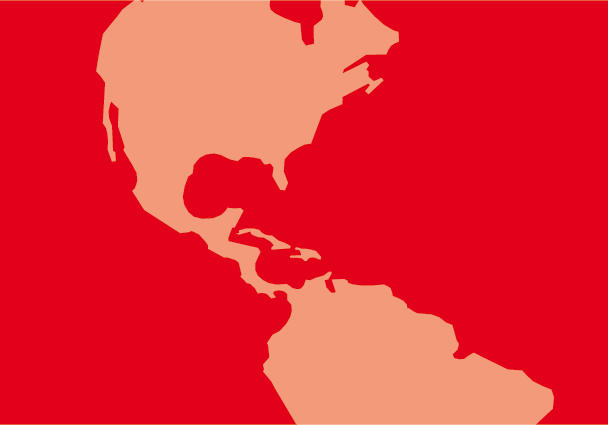
Dec 6, 2023 | News
Peru violated its obligations under international law by releasing former President, Alberto Fujimori, in blatant defiance of orders issued by the Inter-American Court on Human Rights (IACtHR) said the International Commission of Jurists (ICJ) today.
The ICJ has called for Peru to abide by its legal obligations and for effective measures by the bodies of the OAS to ensure such compliance.
The early release of Fujimori on purported humanitarian grounds, despite his failure to acknowledge any responsibility or contrition for the atrocities for which he was convicted, is an affront to the many victims and families who suffered severe abuse under his Presidential rule.
Even though the action does not formally amount to a reversal of finding of culpability or a forgiveness of crimes, Peru failed to follow procedures which would take into account the concerns of victims or to substantiate the humanitarian necessity of his release.
In 2009, Fujimori was sentenced to 25 years in prison for his role in the commission of extrajudicial executions, enforced disappearances and other acts, which cumulatively amounted crimes against humanity. On 6 December 2023, he was released by order of the Peruvian Constitutional Tribunal following an executive humanitarian pardon on 24 December 2017 issue by then-president Pedro Pablo Kuczynski Godard.
The Tribunal and President failed to take into account the victims’ rights to truth, justice, and reparations”, said Carolina Villadiego, ICJ Latin America Team Leader.
The Constitutional Tribunal’s flagrant disregard for the Inter-American Court’s explicit requirement to make this assessment is an affront to the victims of Fujimori’s crimes”, added Villadiego.
Although the human rights of convicted persons require judicial authorities to consider the impact of detention on their health, any imperative health considerations must be substantiated, and the victims must be heard, and their rights taken into account when determining whether humanitarian release should be granted.
Following issuance of the executive pardon in 2017, on 30 May 2018, the IACtHR adopted a resolution requesting the Peruvian authorities to evaluate the possibility of a judicial review of the humanitarian pardon. According to the IACtHR, that assessment should have into account, among other considerations, the right of Fujimori’s victims to have access to justice; the proportionality of the sentence imposed and its execution; the rights of Fujimori, in particular his right to life, personal integrity, and health.
The Inter-American Court already identified inconsistencies in Fujimori’s health assessment, which should have prompted domestic courts to fully inquire into the circumstances leading to the pardon and ensure the rights of all parties involved were considered”, affirmed Villadiego. The rights of victims seem to have been sidelined by both President Kuczynski and the Constitutional Tribunal, unravelling years of progress towards combating impunity in the country”, added Villadiego
The IACtHR exercises a supervisory duty over decisions related to Fujimori’s case, Barrios Altos and La Cantuta cases, in which it found Peru had violated is obligations under the American Convention on Human Rights (ACHR) by failing to hold perpetrators of gross human rights violations committed in Peru to account. Peruvian authorities are obligated to comply with the IACtHR’s decisions in this case, consistent with fundamental rule of law principles.
The ICJ underscores unequivocally that the Peruvian authorities must comply with the orders of the IACtHR. The Peruvian Constitutional Tribunal does not have the authority to disregard the IACtHR’s power to issue orders as part of its judicial function of supervising the execution of its decisions and to override those orders.
The ICJ calls on the Peruvian authorities to comply with the orders of the IACtHR and to review Fujimori’s executive humanitarian pardon. This requires an updated, thorough and impartial assessment of Fujimori’s health and consideration of the rights of Fujimori’s victims.
The ICJ also calls upon the international community, in particular members of the Organization of American States, to demand that Peru comply with the orders of the IACtHR and fulfil its international human rights obligations towards victims of serious human rights violations and crimes under international law.
Background
In 2009, the Peruvian Supreme Court convicted Alberto Fujimori for the murder of 25 people, the serious injury of four people and the kidnapping of two people, which it held amounted to crimes against humanity. As a general principle, international law and standards prohibits the issuance of amnesties and pardons for those convicted of gross human rights violations amounting to crimes under international law. International law also requires protection of the right to health of all persons, including prisoners, which in some instances could preclude institutional incarceration.
Peruvian Constitutional Tribunal’s rulings
On 4 December 2023, the Peruvian Constitutional Tribunal handed down a ruling ordering the National Penitentiary Institute to immediately release former President Fujimori, who is serving a 25-year prison sentence that is due to be completed in February 2032. The ruling was the last judicial decision triggered by a humanitarian pardon for health issues granted to Fujimori on 24 December 2017 by then-president Pedro Pablo Kuczynski Godard. Previously, on 17 March 2022, the Constitutional Tribunal had ruled that Fujimori’s humanitarian pardon should be implemented.
In the 2023 ruling, the Tribunal also stated that the IACtHR did not have the competency to rule on the non-enforcement of a national ruling as part of the IACtHR’s judicial function of supervising the execution of its decisions. This pronouncement was in reaction to the action taken on 7 April 2022, in which the IACtHR had ordered the Peruvian State not to implement the 2022 Constitutional Tribunal’s ruling.
The Tribunal’s position is contrary to the IACtHR’s faculties established in Articles 33, 62.1, 62.3 and 65 of the ACHR and Article 69 of the Rules of Procedure of the IACtHR’s. Moreover, the Tribunal’s position might imply that some actions of judicial authorities may be outside the scope of the control of conventionality, and therefore, outside the obligation established under the ACHR.
Inter-American Court of Human rights’ decisions
Before the 2009 conviction sentence against Fujimori, for the same facts, in 2001 and 2006, in the cases of Barrios Altos and La Cantuta, the IACtHR’s had found that the Peruvian state had breached its obligations under the ACHR. The IACtHR determined that Peru had violated the right to juridical personality (Article 3), the right to life (Article 4), the right the right to humane treatment (Article 5), the right to personal liberty (Article 7), and the right to a fair trial and judicial protection (Articles 8 and 25). In both cases, among other reparation measures, the IACtHR ordered Peru to identify, investigate, prosecute, and punish those responsible for human rights violations.
As part of the judicial function of supervising the implementation of its decisions, the IACtHR’s has issued several resolutions ordering measures for the full implementation of the orders in the cases of Barrios Altos and La Cantuta. Following the issuance of the humanitarian pardon in December 2017, the IACtHR’s issued a resolution on 30 May 2018 requesting the Peruvian authorities to evaluate the possibility of a judicial review of the humanitarian pardon.
For the IACtHR, this judicial review would consider: (i) the right of Fujimori’s victims to have access to justice; (ii) the proportionality of the sentence imposed and its execution; (iii) the rights of Fujimori, in particular his right to life, personal integrity and health; and (iv) the fact that prison sentences cannot be converted into death sentences. In addition, the IACtHR considered that there were serious doubts as to whether the legal requirements laid down in Peruvian law for the granting of the humanitarian pardon had been met. The IACtHR highlighted inconsistencies in Fujimori’s health assessment and allegations that the pardon was granted to give then-President Kuczynski the votes in Congress to avoid impeachment.
In addition, the IACtHR also mentioned that in cases of serious human rights violations and crimes under international law, pardons for health reasons, such as in the Fujimori case, it is necessary to take into account the health of the convicted person, but it should also be considered:
(…) [whether] a substantial part of the sentence has been served and the civil compensation imposed in the sentence has been paid; the behaviour of the convicted person with regard to the clarification of the truth; the recognition of the seriousness of the crimes committed and their rehabilitation; and the effects that early release would have on society and on the victims and their families.”
The judicial review carried out by the Peruvian Constitutional Tribunal failed to take into account any of the requirements established by the IACtHR in its resolution of 30 May 2018. As a result, on 7 April 2022 and on 5 December 2023, the IACtHR ordered the Peruvian State not to implement the decision of the Constitutional Tribunal in relation to Fujimori’s humanitarian pardon. This was done in order to guarantee the right to access to justice of the victims of the cases of Barrios Altos and La Cantuta.
Contact:
Carolina Villadiego Burbano, ICJ Latin America Team Leader, email: carolina.villadiego@icj.org
Rocío Quintero Martínez, ICJ Legal Adviser for the Latin America Programme, email: rocio.quintero@icj.org











